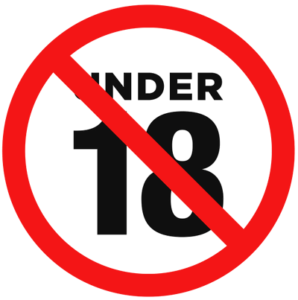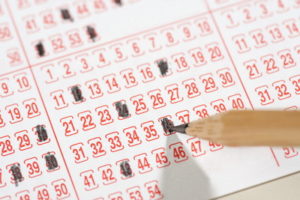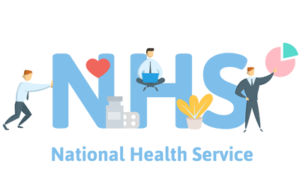National Lottery Increases Age From 16 To 18 From October 2021
 The government is moving to crackdown on problem gambling, with the first step along that journey being to raise the minimum age for playing the lottery from 16 to 18. It is part of what is being referred to as a ‘major and wide-ranging review’ of the gambling sector and other changes are expected in the coming weeks and months.
The government is moving to crackdown on problem gambling, with the first step along that journey being to raise the minimum age for playing the lottery from 16 to 18. It is part of what is being referred to as a ‘major and wide-ranging review’ of the gambling sector and other changes are expected in the coming weeks and months.
The change to the minimum age on playing the National Lottery is to come into effect in October 2021. The change comes as part of the government’s attempts to update the 2005 Gambling Act, which has been referred to as ‘an analogue law in a digital age’. The need to review is is based on the fact that the industry has moved at ‘breakneck speed’.
While the lottery itself is considered a relatively ‘low risk’ product for causing gambling addiction it is believed it acts as a gateway to more addictive forms of gambling and for that reason should be brought in line with other verticals with an 18+ age limit.
Why The Shift In Age From 16 To 18?
 The major emphasis for the government for a long time has been in protecting young and vulnerable people from gambling related harm. Sport Minister Nigel Huddleston said as much, pointing to the way that ‘patterns of play’ have changed since the inception of the National Lottery back in 1997, including a shift towards playing online.
The major emphasis for the government for a long time has been in protecting young and vulnerable people from gambling related harm. Sport Minister Nigel Huddleston said as much, pointing to the way that ‘patterns of play’ have changed since the inception of the National Lottery back in 1997, including a shift towards playing online.
He pointed out that the National Lottery was ‘already low-risk’, but that by moving the minimum age to play it from 16 to 18 it would limit the chance of it becoming a ‘gateway to problem gambling’. Oliver Dowden also pointed to the need to protect people, saying that the review was aimed at reducing ‘problem gambling in all its forms to protect children and vulnerable people’.
When Will The New Age Limit Come In Effect?
 The shift in the minimum age to play the National Lottery will actually come into effect in October of 2021, but in practice is will happen much sooner. This is because those aged 16 and 17 will be unable to take advantage of online sales from April 2021. They’ll still be able to buy tickets and scratch cards in shops up until October.
The shift in the minimum age to play the National Lottery will actually come into effect in October of 2021, but in practice is will happen much sooner. This is because those aged 16 and 17 will be unable to take advantage of online sales from April 2021. They’ll still be able to buy tickets and scratch cards in shops up until October.
For many, the changes aren’t coming soon enough. Matt Zarb-Cousin, for example, is a former gambling addict who runs the campaign group Clean Up Gambling. He said,
“This wide-ranging review is a long overdue opportunity to clean up our outdated gambling laws, which are incompatible with the smartphone era.”
What Other Changes Are Likely?
 At the time of writing, the altering of the minimum age to buy lottery tickets is the only thing that is set in stone, but there are many other areas of the Gambling Act that are also being looked at. It’s likely that online stakes will be limited, for example, to bring the online world in line with the changes to the maximum stake on Fixed Odds Betting Terminals.
At the time of writing, the altering of the minimum age to buy lottery tickets is the only thing that is set in stone, but there are many other areas of the Gambling Act that are also being looked at. It’s likely that online stakes will be limited, for example, to bring the online world in line with the changes to the maximum stake on Fixed Odds Betting Terminals.
A restriction on gambling advertising is also being considered, which could include banning betting firms from sponsoring football shirts. At the present time, the government is canvassing views on possible changes, calling for evidence until March of 2021. It is hoped that by doing so, there will be less opposition to any possible changes to the laws.
One area that is likely to be changed is the role of the Gambling Commission. Though it issued a £2.2 million fine to Paddy Power in 2018, a £11.6 million fine to Betway in March of this year and Caesars Entertainment with a £13 million fine in April, the Public Accounts Committee described the industry’s governing body as ‘toothless’ in June.
Putting Customer Protection At The Heart
 The review into gambling industry practices will examine what actions punters can take if they feel as though an operator has breached their social responsibility requirements. The hope is that this will put customer protection ‘at the heart of the regulations’. The key will be doing this whilst also avoiding limiting those that gamble safely.
The review into gambling industry practices will examine what actions punters can take if they feel as though an operator has breached their social responsibility requirements. The hope is that this will put customer protection ‘at the heart of the regulations’. The key will be doing this whilst also avoiding limiting those that gamble safely.
The Department for Digital, Culture, Media and Sport said,
“Whilst millions gamble responsibly, the Gambling Act is an analogue law in a digital age… the industry has evolved at breakneck speed.”
At the same time, the Shadow Culture Secretary, Jo Stevens, said that it was ‘disappointing’ that it had taken a year to launch the review.
Thinking Of Public Health
 The Gambling Health Alliance is an umbrella group for 50 different academics and charities. The group has called for the government’s review to focus on the damage that can be done to public health by gambling. The chair, Duncan Stephenson, said that the public has been as ‘the mercy’ of the gambling industry for 15 years.
The Gambling Health Alliance is an umbrella group for 50 different academics and charities. The group has called for the government’s review to focus on the damage that can be done to public health by gambling. The chair, Duncan Stephenson, said that the public has been as ‘the mercy’ of the gambling industry for 15 years.
He said,
“We have seen the devastating effects of this on lives lost and ruined, with gambling companies shamelessly exploiting the young and vulnerable, making obscene amounts of money at the expense of some of our most deprived communities.”
This has been allowed, according to Stephenson, because of the sluggish’ regulation in place.
How Does The Industry Feel About It?
 It goes without saying that the gambling industry as a whole isn’t overly keen on the planned changes. Even the Chairman of Flutter Entertainment, the parent company of Paddy Power, has suggested that changes need to be made cautiously. Ian Proctor generally agrees that the gambling rules do need to be updated, but was wary of ‘unintended consequences of regulation that isn’t thought through.
It goes without saying that the gambling industry as a whole isn’t overly keen on the planned changes. Even the Chairman of Flutter Entertainment, the parent company of Paddy Power, has suggested that changes need to be made cautiously. Ian Proctor generally agrees that the gambling rules do need to be updated, but was wary of ‘unintended consequences of regulation that isn’t thought through.
Speaking to the BBC’s Today programme, the Chair said,
“We take [problem gambling] incredibly seriously… but let’s also get this in a little bit of context. For millions of people every week, they enjoy a bet, it’s a leisure activity, it gives people a lot of pleasure. For some people it’s not, for a small minority. And we need to make gambling safer for those people.”
The review is likely to look at the apparatus that the gambling industry uses to attract new customers, including the likes of sponsorship, promotions and marketing tools. This should be bad news for gambling companies, but it hasn’t yet affected the share price of the likes of William Hill or the aforementioned Flutter Entertainment. This is probably because previous such reviews have always been ‘watered down’ to make them more palatable.



